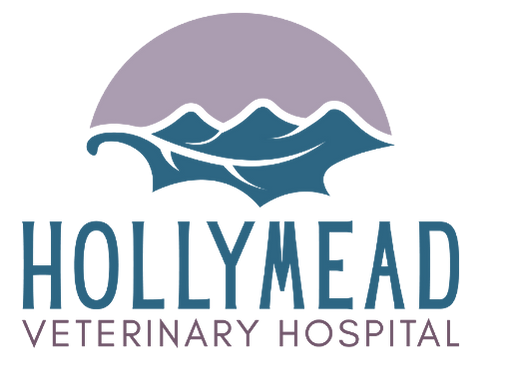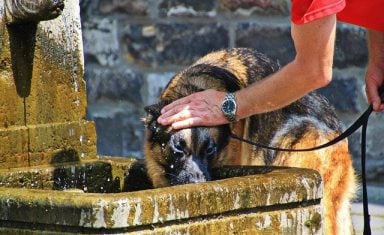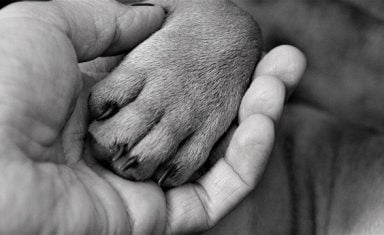Many pet owners are guilty of feeding their beloved companions treats from the table at dinner time. Those who do may suspect that these treats might be unhealthy. However, even some owners who aren’t trying to let their animal in on a little guilty pleasure might be providing an unhealthy diet—a lot of home-made specialty foods contain toxins, or lack the right nutrition. Every owner should be aware of the most dangerous, and least nutritious, foods for cats and dogs.
Grapes
Grapes are a popular, healthy table snack for humans. It might seem harmless to pass along a few of these fruits to your dog, but doing so can cause acute kidney failure! Doctors still aren’t sure why this happens, but we do know that whatever the toxin is, it’s more concentrated in raisins than grapes.
Common clinical signs of a dog suffering from kidney failure include vomiting, diarrhea, excessive drinking/urine production, and swelling. The best treatment is prevention—keep grapes away from your animals! However, if your pet does get into a batch of raisins or grapes, you should seek veterinary care immediately. The veterinarians will treat your pet through a combination of induced vomiting, giving your pet activated charcoal to bind the toxins, and delivering intravenous fluids on an aggressive fluid rate. All the while, they will monitor your animal’s blood values until they are at safe numbers.
As a side note, it is best to treat early. Kidneys are a funny organ in that they do not regenerate very well once they go into failure. Early treatment prevents them from developing renal failure. The prognosis is much more favorable if we can prevent them from getting to that point.
Bread and beer
My father loves to bake, and his favorite recipes are bread or pizza dough from scratch. Against my advice he often even gives our dogs small amounts of the dough as he is making it. Now, bread dough isn’t necessarily toxic, but it might cause your pet some serious stomach troubles. See, the warm, moist environment in the stomach is a wonderful place for yeast to grow. Once your pet has ingested the dough, the yeasts might feed and expand in the stomach. This can lead to blockage and gastric distention. What’s more, this distention can lead to problems in the lungs and blood circulation. Finally, when yeast ferments it produces alcohol. This can lead to a build up of acid in the animal’s body. Or, your dog might just become straight up intoxicated—the bad kind of intoxicated. Common clinical signs noted by owners include unproductive vomiting, abdominal distention, and depression. If enough alcohol is produced owners have noted staggering, weakness, and lethargy.
On a related note, never give your pets alcoholic beverages. While some dogs and even cats might lap up your beer, doing so can cause many of the same internal problems as would feeding them bread dough. Do not give your pet alcoholic beverages!
The treatment for alcohol, or bread dough, ingestion is neither pretty nor cheap. It consists of stomach pumping, treatment for alcohol toxicosis, and supportive care.
Onions
Almost everything I cook has both onions and garlic in it, and I am definitely guilty of giving my dogs treats from the table. However, I am very careful to pick out any trace of these root vegetables before passing any food to them. Simply put: Onions are toxic to pets, and garlic is even worse. The volatile oils that give these plants such rich, aromatic flavors are toxic to your pet. Once inside your pet’s body, these oils get into the bloodstream and oxidize red blood cells. This can lead to intravascular hemolysis, anemia, vomiting, and diarrhea. Most owners will notice the vomiting and diarrhea first, as the blood cell damage won’t peak until 4-7 days after ingestion. Treatment consists of inducing vomiting, supportive care, and in severe cases hospitalization with treatment for anemia.
Macadamia nuts
Macadamia nuts are toxic to canines. Most cases present with inability to stand and hind limb weakness within 12 hours of ingestion. The mechanism of the toxicity is unknown, but it is specific to dogs. With proper treatment most dogs recover very well and are back to normal within 48 hours. Treatment includes inducing vomiting, activated charcoal, supportive care, and in some cases enemas.
Avocados
Avocados are delicious and more popular than ever. However, they are toxic to many animals. Given to birds, and things get really serious. A bird that has eaten avocado could myocardial necrosis—heart attack—and respiratory failure. Most of the time, this combination leads to death. Treatment consists of supportive care. So, don’t feed any guacamole to Polly!
Canines and felines usually develop gastrointestinal signs and possible obstruction if they ingested the avocado pit. Horses, ruminants, and rodents can develop a sterile inflammation of the mammary gland upon ingestion.
Trash
Many dogs and some cats find the trash can to be a sort of all you can eat buffet. While I was in veterinary school in the Caribbean, the local dogs would constantly knock over and gorge themselves on whatever they found in the trash. Besides the various items that may be toxic or cause obstruction, mold growing on the expired food is extremely toxic. These molds contain tremorgenic mycotoxins. These toxins, as the name implies, can cause tremors. They also have been known to cause seizures. Common clinical signs observed initially are fine twitching tremors progressing to severe tremors. Some owners have noted vomiting, depression, hyperactivity, and behavior changes. The onset of symptoms is extremely rapid. Some pets have died in the first two to four hours after ingestion. Treatment consists of inducing vomiting, treatment of seizures, supportive care, anti-convulsants, and muscle relaxers. Early treatment is once again provides the best prognosis.
Most of us will be unable to resist the urge to feed our pets treats. It is one of the ways that we as humans demonstrate our love to our pets, and they love us for it! We do need to be aware of what we are feeding and realize that every animal is built differently. What is good for you may not be good for your pet. What is good for animals in the wild may not be good for a domesticated species. Prevention is the best treatment and is always much kinder to the pocket book. If your pet has ingested anything dangerous, don’t hesitate to call our 24/7 emergency clinic and bring your pet in for immediate care!
For more information, contact our team at VETSS!




